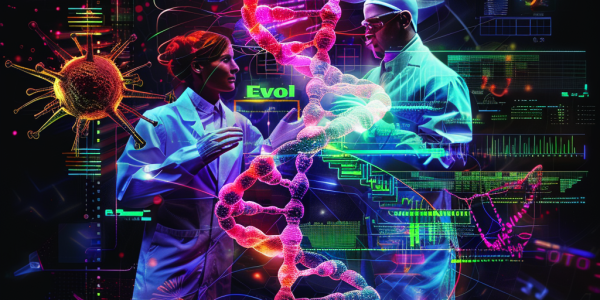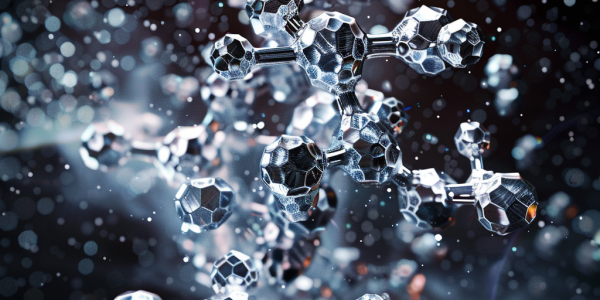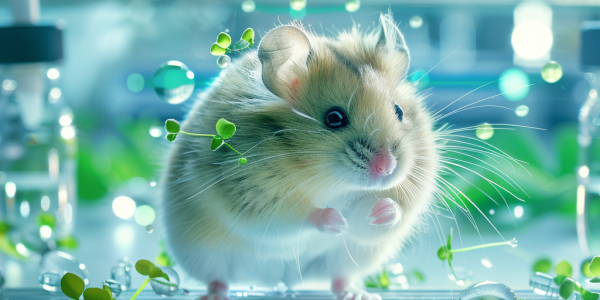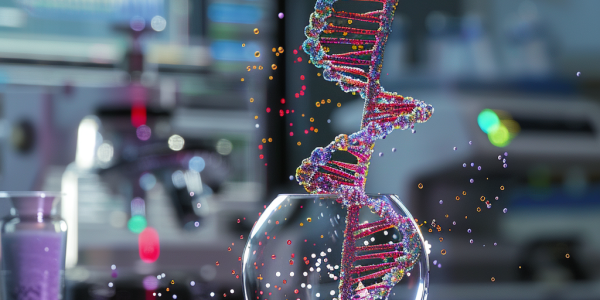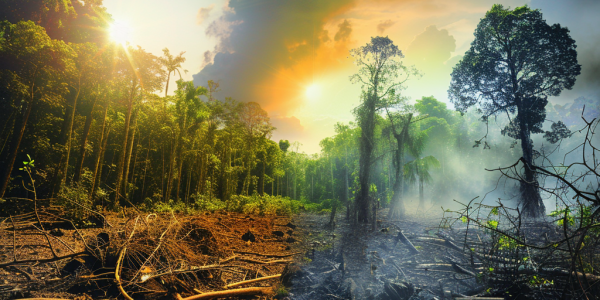Navigating Privacy and Climate Challenges: Data Management and Marine Ecosystems
Explore the critical intersection of data privacy and climate change in our digital age. Learn how cookie management affects personal data and discover the profound implications of climate change on marine ecosystems, particularly the acclimatization of foraminifera. Stay informed and proactive in protecting your privacy and the health of our oceans.
Roblox Enhances Parental Controls to Safeguard Young Users
Roblox is enhancing parental controls to create a safer online environment for children. New features include a user-friendly dashboard for parents to monitor gameplay and interactions, content restrictions for users under nine, and disabled chat functionalities for preteens. These measures come in response to safety concerns and aim to protect young users from inappropriate content and interactions, setting a precedent for accountability in the gaming industry.
Arc Institute Launches ‘Evo’: A Revolutionary AI Model for Genetic Research
The Arc Institute has launched ‘Evo,’ the first biological foundation model trained on DNA, capable of predicting and designing genetic sequences over one million bases. This groundbreaking tool promises to revolutionize genetic engineering and synthetic biology by enhancing our understanding of DNA and its functions, paving the way for innovations in medicine, agriculture, and environmental sustainability.
Northern Lights: Beauty Amidst Solar Storm Risks
The Northern Lights, or aurora borealis, are captivating displays that have gained attention due to heightened solar activity this year. While geomagnetic storms have reached as far south as Arizona and Florida, experts assure that observing the auroras is safe. However, solar flares and coronal mass ejections pose risks to technology and infrastructure, making awareness and preparedness essential for enjoying this natural phenomenon.
KIST Develops Innovative Silver-Silica Catalyst for Enhanced CO₂ Reduction
A groundbreaking study from the Korea Institute of Science and Technology (KIST) reveals a novel silver-silica composite catalyst that enhances CO₂ reduction efficiency. Led by Dr. Hyung-Suk Oh and Dr. Woong Hee Lee, this innovative catalyst maintains nearly 100% selectivity even at high current densities, addressing challenges in carbon capture and utilization technologies. This advancement could revolutionize CO₂ utilization, making it more commercially viable and effective in combating climate change.
Scientists Create Solar-Powered Hamster Cells in Biotech Breakthrough
Scientists in Japan have achieved a groundbreaking feat by integrating chloroplasts into hamster cells, allowing them to harness sunlight for energy. This innovative research, published in the Proceedings of the Japan Academy, Series B, challenges previous beliefs about the compatibility of plant organelles with animal cells and opens new avenues for tissue engineering and regenerative medicine.
Hubble Captures Stunning Image of Interacting Galaxies 390 Million Light-Years Away
NASA’s Hubble Space Telescope captures a stunning image of MCG+05-31-045, a pair of interacting galaxies in the Coma galaxy cluster, 390 million light-years away. This cosmic dance showcases the gravitational interactions that lead to new star formation and the eventual transformation of galaxies into elliptical forms. Discover how these celestial events provide insights into the lifecycle of galaxies and the dynamics of the universe.
Revolutionary Gene-Editing Tool HACE Offers Unprecedented Precision in Genetic Research
A groundbreaking gene-editing tool, Helicase-Assisted Continuous Editing (HACE), offers scientists unparalleled precision in targeting genetic mutations. By combining helicase enzymes with CRISPR technology, HACE enables the introduction of specific mutations without disrupting the entire genome, revolutionizing research in gene function and disease mechanisms. Recent studies demonstrate HACE’s potential in identifying drug resistance mutations in cancer, paving the way for novel therapies and enhanced cancer treatment strategies.
Alarming Decline in Natural Carbon Sinks Poses Threat to Climate Efforts
Recent studies reveal that natural ecosystems, crucial for absorbing carbon dioxide, have nearly stopped this process, raising concerns about climate change. The decline in carbon sinks, exacerbated by rising temperatures and extreme weather, threatens to accelerate global warming. With 2023 marking the highest CO2 emissions ever, the need for urgent climate action is critical to preserve and restore these vital ecosystems.
Exploring the Enigmas of Dark Matter and Dark Energy
Explore the mysteries of dark matter and dark energy, which together constitute about 95% of the universe’s mass-energy content. This article delves into the enigma of dark energy, the invisible nature of dark matter, and the ongoing search for dark matter particles, revealing their crucial roles in cosmic evolution and the universe’s accelerated expansion.



